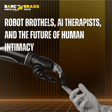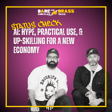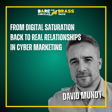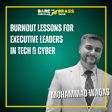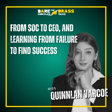
From Hacker to Founder, and Cybersecurity's Future
“When you look at cybersecurity…we've got to be constantly thinking about how we disrupt ourselves in order to actually solve the problem."
Casey Ellis is a hacker, a founder, and an advisor and investor. Occupying a lot of different vantage points in cyber has given him a very unique perspective on the industry.
George K and George A talk to Casey about:
- How Casey went from hacker to solution architect to entrepreneur, creating a marketplace that connects ethical hackers with companies who need them
- Why security startups focused solely on acquisition are hurting the industry (and why defenders deserve better)
- The reality check on AI in security - separating hype from actual value
- Why human creativity will always be necessary in security (automation is great, but humans build systems and humans break them)
It’s real and it’s raw. As always.
👊⚡️🏳️🌈
Our Pride campaign kicks off in June, and we're looking for a brave vendor sponsors! Queer communities are facing backlash and corporations are shrinking back into the shadows.
We’re looking for courageous vendor partners and individuals who will consider matching donations to help us multiply the show's contribution. If you’d like to remain anonymous, that’s fine, too. After all it’s about getting resources to those who need it.
If you're interested, get in touch: contact@bareknucklespod.com

